Alexander I: is the moment of glory coming?
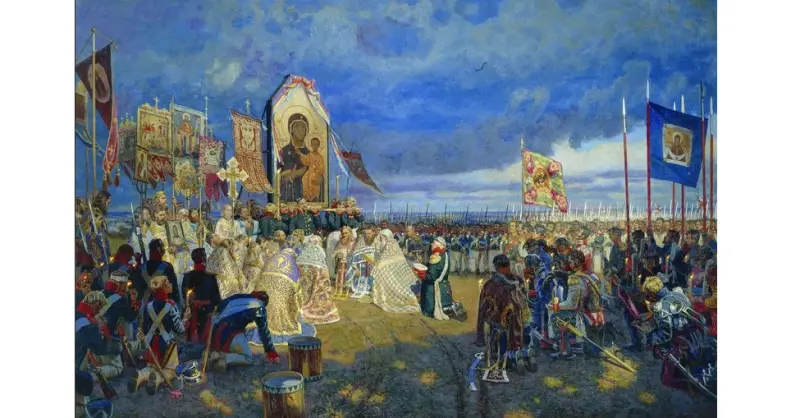
Prayer service on the Borodino field. Hood. E. Zaitsev
Red heels vs red caps
Participation in the wars against revolutionary France was a unifying cause for the semi-feudal and feudal countries of Europe. In Russia, Catherine II, and her son, the first Russian Tsar-Knight Paul I, and the knight-grandson, Alexander I, and the entire nobility understood her class character. But Catherine was busy with more important border problems. And her son, during the fight against the Jacobin infection, moved away from the alliance with Austria because of its unknightly self-interest in Italy, won through the efforts of Suvorov, and personal grievances against England because of the Knights of Malta. But this did not mean that feudal Russia’s priorities had changed. The “division of the world between Don Quixote-Paul and Caesar-Bonaparte” did not happen, including because it was unnatural, not supported by economic ties. And most importantly, it contradicted the class interests of the nobility.
Napoleonic wars
The next stage of the wars for hegemony in Europe was now also associated with the beginning of the struggle of the French bourgeoisie with the late feudal countries of Europe and bourgeois England, which did not allow competitors:
As for Russia, it was not the personal motives of Alexander I that forced him to fight Napoleon, despite the geopolitical positions of the country. Although outwardly everything looked exactly like this:
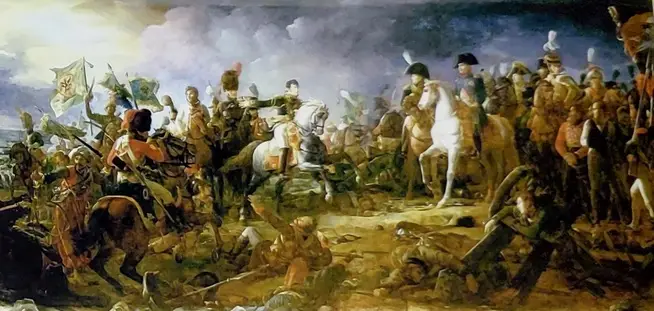
Austerlitz. Hood. J. Pascal
Alexander I, humiliated at Austerlitz in 1805 and Tilsit in 1807, became the Agamemnon of European monarchs and rode into Paris in 1814 on Eclipse, a horse given to him by Caulaincourt by order of Napoleon. Who was always interested in an alliance with Russia, more tactical than long-term, both with Alexander and with his murdered father.
But the feudal system of Russia, moreover, a system that was in its prime and had not exhausted its capabilities in terms of production relations, a system that gave rise to the corresponding mentality, did not allow an alliance with a class antagonist, moreover, without having the economic prerequisites for this. Because feudal Russia was economically tied to England, from 1794 to 1800. the share of English merchants in Russian exports averaged 64%. England sent about 500 ships a year to Russia, Holland - 200-300, and France - 10. And mentally the tsar was guided by the feudal monarchies of Europe, which at the same time were a threat to Russia in geopolitical terms.
Therefore, Russia, the most militarily powerful feudal power in the world, opposed "freedom and equality of bourgeois peoples":
And the angel puts a cross on guard.
Even the peacemaking proposals of Alexander I in 1805 about the structure of Europe were ideas for the conservation of semi-feudal orders. But it was unrealistic to defeat the emperor of the “French bourgeoisie” on the battlefield, which forced the Russian Tsar to sign the Peace of Tilsit in 1807 with Napoleon.
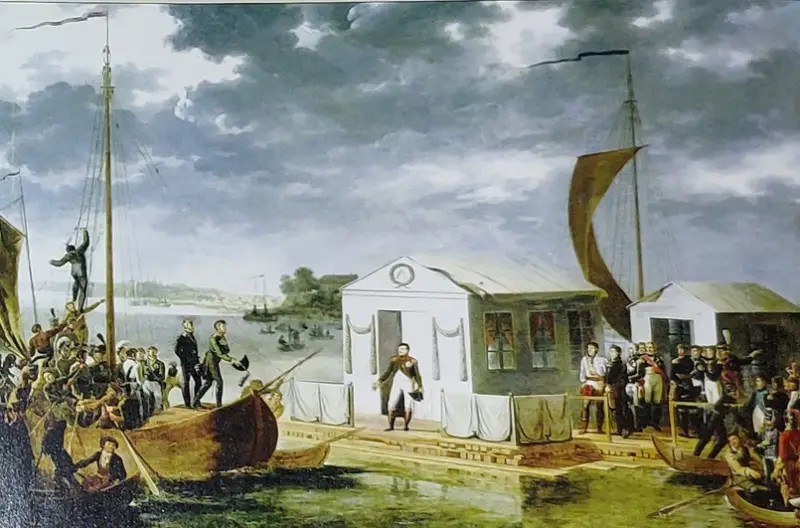
Meeting of emperors in Tilsit in 1807. Hood. A. Kivshenko
Russian noble society perceived it as a symbol of defeat, humiliation before the upstart. According to rumors, there was even talk of “replacing” the Tsar with his sister, the head of the Conservative Party, who would become Catherine III. The Treaty of Tilsit obliged Russia to take part in the French continental blockade of England. Which led to big losses in trade.
Exports in 1808 fell from 54,1 (on average) to 28,3, and imports from 40,8 to 16,2 million rubles. While the price of imported goods was rising, prices of Russian goods were falling due to overstocking. Sugar price has risen from 14 rubles. in 1804 to 24 rubles. in 1809 for a pound, and a pound of Russian iron during the same period fell from 1 ruble. 80 kop. up to 96 kopecks, Berkovets sala – from 48 rubles. up to 26 rub.
And given Russia’s active participation in three coalitions already, a new war between feudal Russia and the “revolution that has become the legitimate power” was inevitable. It was, with other elements, a class war between the new bourgeois society and the old, feudal one, and vice versa.
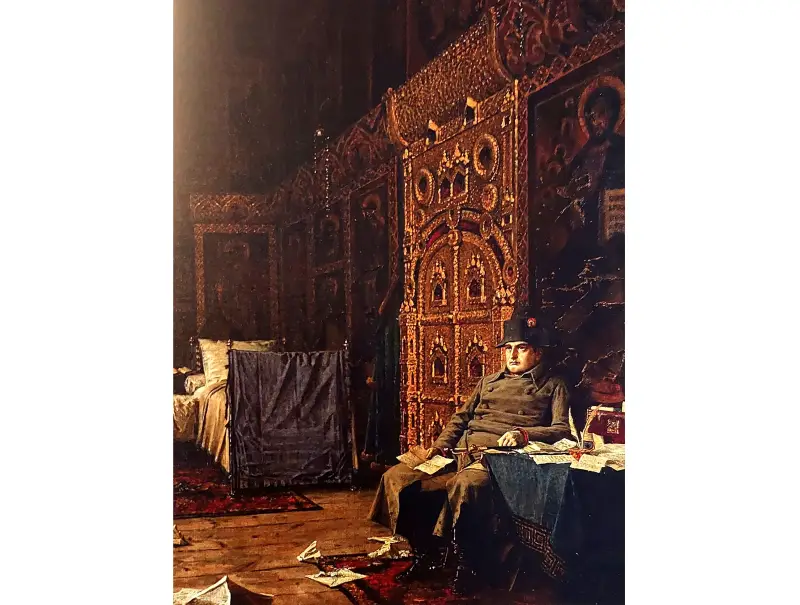
At the stage. Bad news from France. Hood. V.V. Vereshchagin
"Don't let it be the Lord's will"
The Russian victory over the French in 1812 was associated with the gross miscalculations of Napoleon himself, whose policy by that time had reached a dead end. Guerrilla in Spain (1808-1813), the struggle with England, the rise of national patriotism in the German states, caused by the same French bourgeois revolution, the forced stubbornness of Russia, and, finally, the fatigue of the French bourgeois from wars, the desire to enjoy the results of victories. All this made the construction of Napoleon’s peace, built on the “military happiness of France,” extremely shaky. The desire to return Russia, even by force, to an alliance with France did not make it possible to create a clear plan for waging war against it. In any war in Europe, Napoleon defeated the enemy in a general battle and fed the army at his expense. But the Russians' avoidance of the border battle immediately mixed his cards. In addition, Russian diplomacy was able to disrupt the formation of an anti-Russian coalition with the participation of Turkey and Sweden.
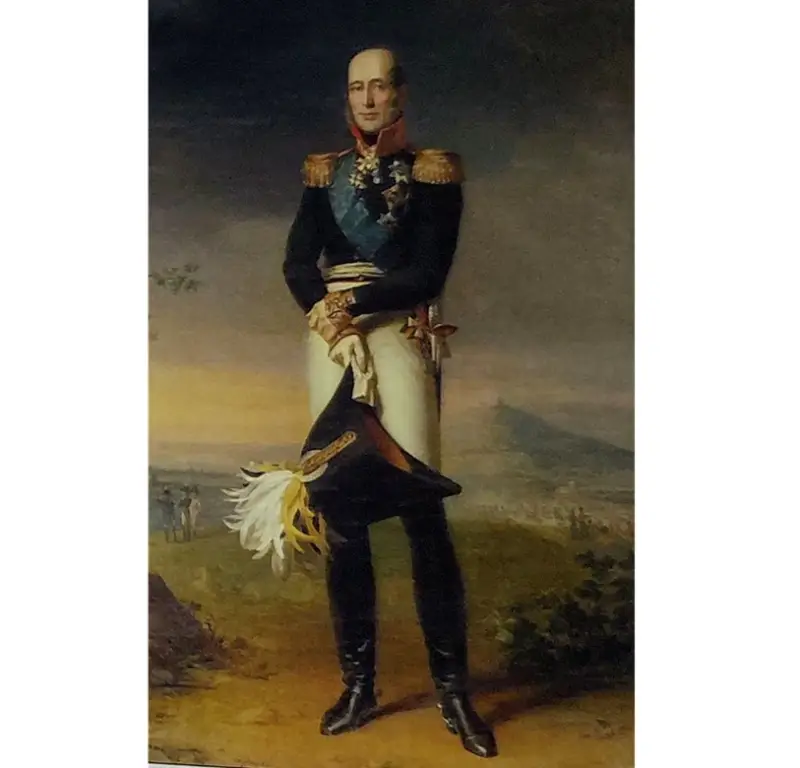
Barclay de Tolly M. A. Hood. J. Law
M. A. Barclay de Tolly (1761–1818), despite unprecedented pressure from the “hat-throwers” party, was able to unite the army and save it from defeat on the march. But Napoleon "did not spoil his opponents with a variety of openings" When approaching Moscow, he again wanted to decide the fate of the company with a general battle and provide “winter quarters” for his army, and the Russians could not afford to surrender the ancient capital without a fight.
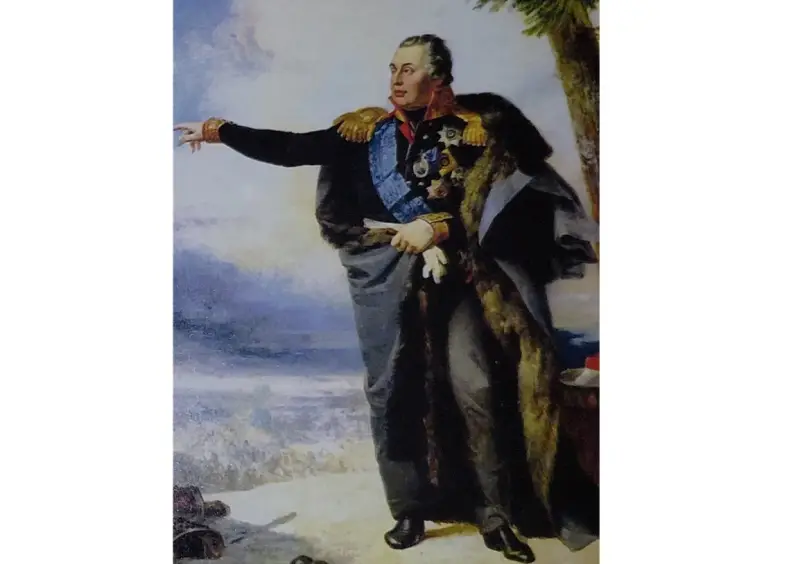
Kutuzov M.I. Khud. J. Law
Napoleon at Borodino won the greatest battle of the first half of the 19th century, but the unprecedented resilience of the Russian troops ensured the safety of the army. And the “accidental” burning of Moscow by Rostopchin, a city, according to the occupiers, more pleasant, rich, elegant and clean than Paris, deprived the Grand Army of its only reliable base in Russia. The lack of food reserves and the retreat demoralized the invading army, and winter and the Russian army destroyed it.
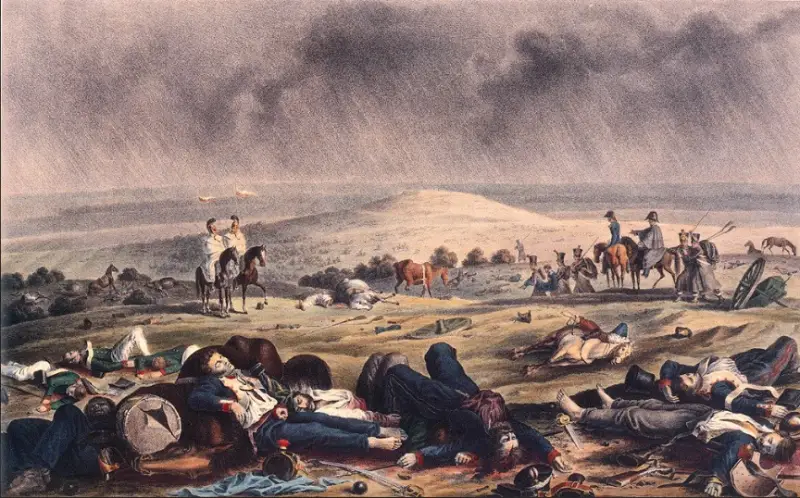
On the Borodino field, September 17, 1812 Hood. Faber du Fort
While waging a war of aggression, Napoleon had no intention of defeating Russia. Here he did not do the same as elsewhere in Europe, where the French were destroying wavering feudal foundations. But this is exactly what he did not do in Russia, an alliance with which, albeit temporary, the French desperately needed. Such a vague war plan led him to defeat. And the most prominent Russian male monarch after Peter I, Alexander I, and his generals were able to take advantage of this: the Russian army consolidated its success.
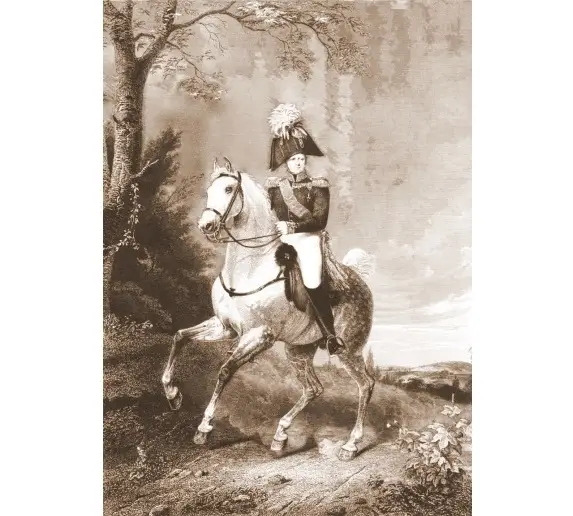
Emperor Alexander I
There is no need to talk about any “club of the people’s war” in a fortress country. The peasants viewed conscription as hard labor; several thousand deserted before Borodin alone. Although it would be wrong to deny the patriotic upsurge among the peasants. In general, among the peasants there reigned both confidence in the complete superiority of the Russian army, and complete indifference to events, and, of course, anti-serfdom sentiments. That is why, to the proposal to arm the peasants near Moscow, Governor F.V. Rostopchin replied:
With the withdrawal of Russian troops from Belarus, widespread looting of noble estates and riots began, while only army “parties” were “partisans.” Peasants and urban lower classes plundered devastated Moscow for several days. And the fight against foreign and Russian marauders was most often carried out by peasants under the leadership of their landowners; the peasant zemstvo militia acted under the control of the administration. The army's "partie" or "partisans" accounted for 76% of the action against the French in October. – Nov. 1812 That is why in the Manifesto of August 30, 1814, the peasants received not specific benefits and relaxations, like other class groups, but “your reward from God».
Because the main participant in the victories over the French was the regular and feudal Russian army. As the leader of the Kaluga nobility N. G. Vyazemsky bluntly stated:
Let us add that the nobility is at the peak of the development of the feudal system, as in France around the 15th century.
But, we repeat, the victory over the French in 1812 was associated, first of all, with the gross miscalculations of Napoleon himself. That is why Alexander I explained it exclusively as “the Lord’s will.”
“Not to us, not to us, Lord, but to your name!”
The defeat of the Grand Army in Russia set Europe in motion. The advance of the Russian army with its allies to the west, although still accompanied by the victories of the “military genius” Napoleon, reduced the ranks of his allies, increasing them among feudal and semi-feudal monarchs, led by the Russian flirtatious Agamemnon and with money from England. The final defeat of Bonaparte turned, according to G. Heine, Europe into the island of St. Helena.
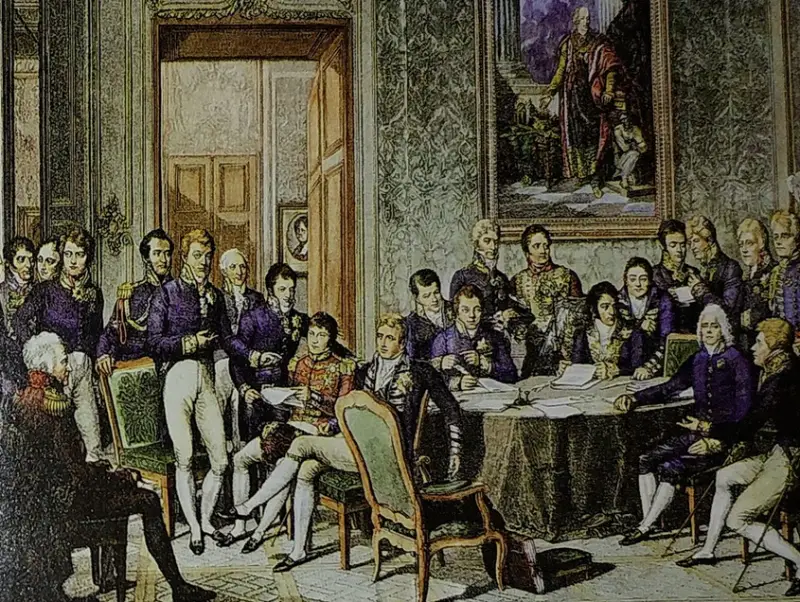
Congress of Vienna. Engraving
The Treaty of Fraternal Christian Union or Holy Alliance of 1815 became a league of feudal and semi-feudal regimes in Europe, the purpose of which was the obligations of the allied rulers before God to fight revolutions. Europe never ceased to seethe, the allies had to fight the Spanish military revolution of Rafael Riego, and the Neapolitan revolution of Guglielmo Peppe. Alexander I devoted all his time to this activity, no longer very interested in “liberal” projects of liberation for his country, severely devastated by invasion and external wars, including the ancient capital. As the future Tsar Nikolai Pavlovich wrote about the war-ravaged Smolensk state peasants in his notes:
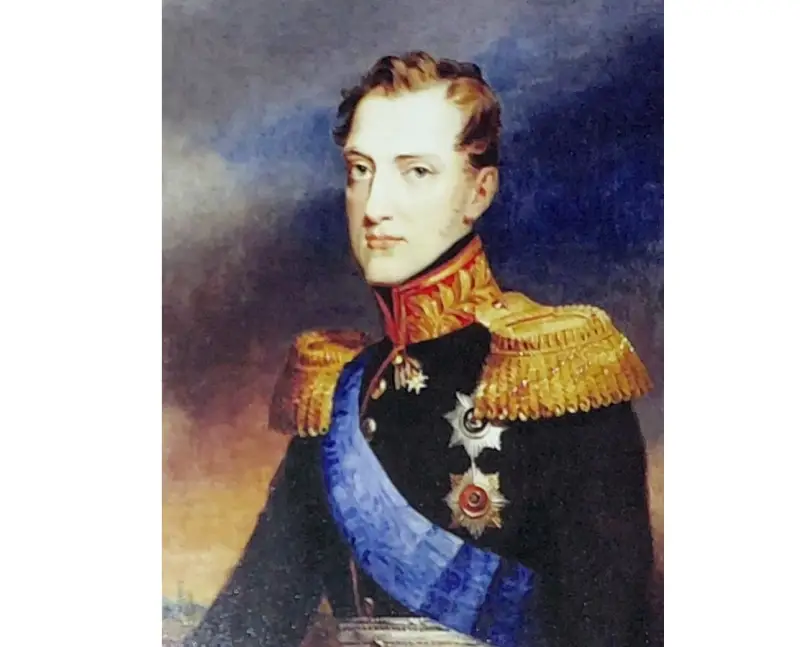
Grand Duke Nikolai Pavlovich. Hood. V. Golike
Blood of war
The Russian soldier was the “cheapest” soldier on the continent. But at the same time, only 3% of the military budget went to armaments, the rest - to the maintenance of the military, horses, etc., which was still not enough. And it was compensated at the expense of society. In Russian conditions, the recruit-farmer was forever (25 years in the XNUMXth century) expropriated from productive activities, and the army was stationed by the inhabitants all year round; “recruit uniforms” were provided by local authorities. There was a catastrophic lack of money to maintain a modern army. State the budget of this time is a direct copy of the “budget” of the Russian serf, which I wrote about in the article “The Golden Age of the Russian Nobility”: there is not enough money, because there is simply no money and there is nowhere to get it from.
The War of 1812 alone cost the military department 160,5 million rubles. Expenditures of the entire budget of Russia in 1813 amounted to 423 million rubles, 380,57 million rubles were used by the military department. or 264% of the total budget; in 702,283 62,5 million rubles. – 1814 million rubles. or 457%; in 000 278 million rubles. – 500 million rubles. or 60,9%. Due to the difficulties of financing regiments during an overseas campaign, they were forced to be self-sufficient, and the government paid them only in 1815.
The Napoleonic wars undermined the internal forces of not just Russia, but all European countries, including England (its debt exceeded its annual income by 7 times).
After the end of the Napoleonic Wars, the situation forced Alexander I to have an army twice as large as that of his “allies,” Austria and Prussia. This prépondérance politique, political superiority, seriously increased the empire's debt: from 1821 to 1825 it grew by 35% and amounted to 1 rubles, while at the beginning of the 097th century. it was equal to 266 rubles. It consisted of issuing banknotes, bonds and borrowings, including the “Dutch debt” inherited from her grandmother, Catherine the Great. The emperor understood the depth of the problem, but he found himself between a “rock and a hard place”: the free trader, liberal tariff (302) seriously weakened his own industry, but made it possible to provide the poor Russian consumer with inexpensive products and, most importantly, made it possible to obtain loans in Europe for the army and cover debts. And the attempt to develop their own industry through a protective tariff (408) hampered the development of the consumer market for peasants and their feudal lords and closed the way to external borrowing.
In such difficult conditions, associated, I emphasize, with the militarization natural for “classical” feudalism, aggravated by external realities and technical achievements of the period under review, an army that met all the requirements of the beginning of the 19th century was an unbearable burden for Russia.
It was also unbearable for socially “advanced” neighbors in Europe, including England. In search of a way out of the impasse regarding the maintenance of the army in peacetime, under the influence of European models, a system of “military settlements” was formed. But under feudalism, this system took on catastrophic forms for the “serf” soldiers and for the peasants who ended up in “military settlements.”
Between the upper and the nether millstone
The war in Europe strengthened the feudal freemen, who brilliantly fulfilled their military duty. At the same time, foreign campaigns associated with the liberation mission contributed to the growth of "the pernicious spirit of freethinking or liberalism"from the nobility:
That is why, constantly being on European voyages and trips around the country, “collegiate assessor for foreign affairs“Alexander entrusted the management of the country to the “half-emperor” A. A. Arakcheev (1769–1834), who was supposed to bring a society that wanted abstract changes to the same order, like artillery or recruits before 1812.
It is significant that the first Russian gendarme characterized the last years of the reign of “Angel” Alexander as “despotism" Relatives and courtiers called him the Angel of Alexander I.
The troops that defeated Napoleon, with their inability to stretch their legs on the parade ground, caused annoyance among the tsar, his brothers and those close to him, military in form, but not in content:
All the conversations that began at this time about how no one in Russia complies with the laws, that their severity is compensated by the possibility of not complying with them, etc., are connected precisely with the feudal mentality, which, of course, ran counter to regular and rational laws and institutions copied from other countries, except those dedicated to strengthening the power of the nobles over the peasants.
In 1818, Alexander I traveled through Russia from north to south and became convinced that the majority of small landed nobles did not want either the abolition of serfdom or any “enlightened reforms.”
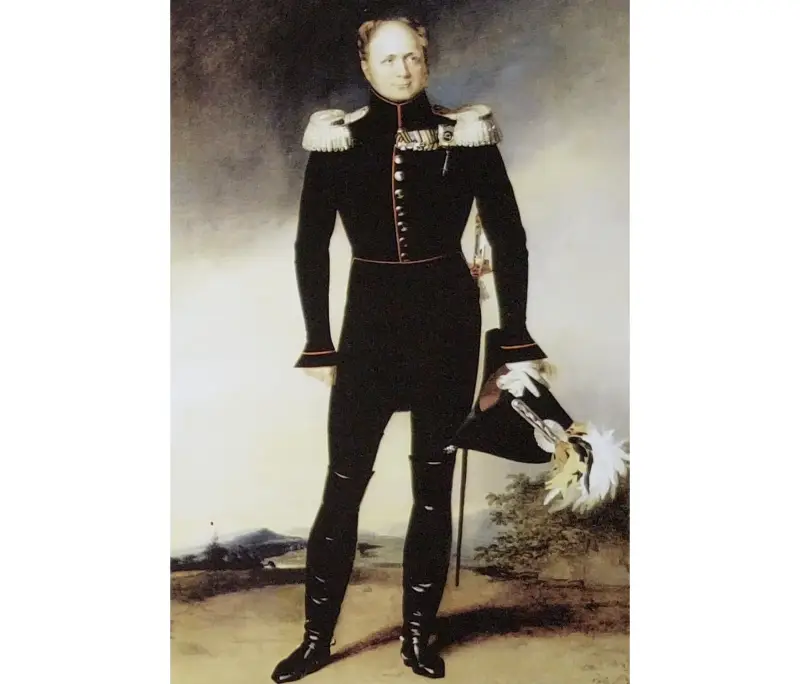
Tsar Alexander I. Hood. J. Law
Because feudal relations of production in Russia did not reach their final stage due to the “age” of Russian feudalism. Russian feudal lords saved the semi-feudal monarchies of Europe from the bourgeois threat of “freedom, equality and fraternity”. But the modernization that was launched by Peter I at the beginning of the 18th century. and which played a huge progressive role in the development and defense of the country and the ruling class, had by this time exhausted itself.
The Industrial Revolution took place in England, and in France, the second country in Europe, new, progressive bourgeois relations were consolidated. And with this situation, the world of knights, the world of plowing and praying everywhere came to an end.
Продолжение следует ...
Information